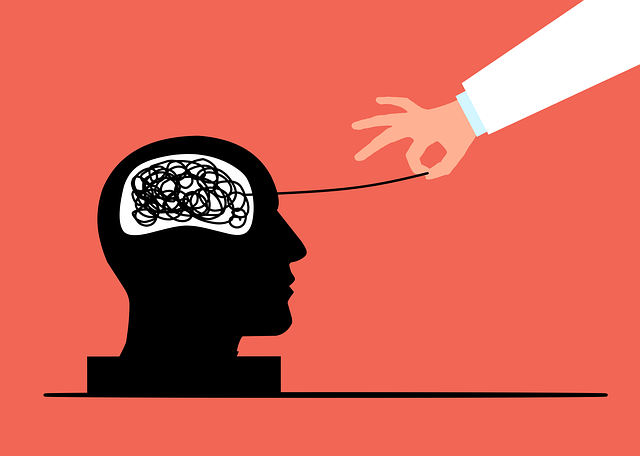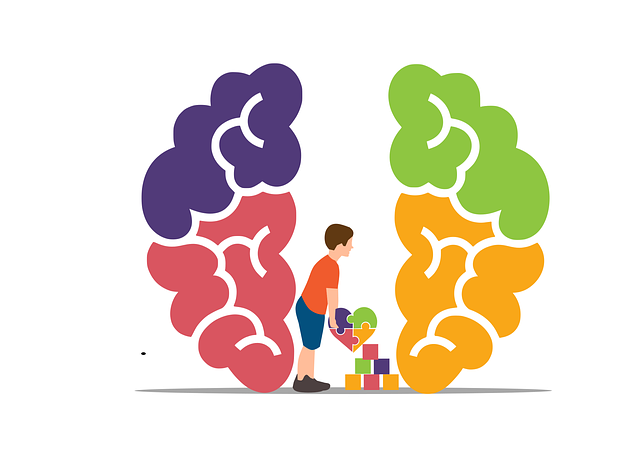Greenwood Village Bipolar Disorder Therapy focuses on emotion regulation as a powerful tool for managing bipolar disorder. By teaching clients to identify and accept emotions, while promoting healthy responses through techniques like cognitive reappraisal and mindfulness practices, individuals gain resilience and learn to effectively cope with mood swings. Trigger identification, personalized coping plans, and emotional balance are key aspects of their approach, enabling individuals to navigate life's challenges with enhanced emotional well-being. Integrating emotion regulation into daily routines through mood journaling, mindfulness meditation, and confidence-boosting activities empowers individuals to take control of their emotional stability.
Emotion regulation techniques are essential tools in managing mental health, particularly for individuals dealing with bipolar disorder. This comprehensive guide explores effective strategies to understand and navigate emotions. We delve into identifying triggers, employing coping mechanisms, and mastering techniques to modify emotional responses. For those seeking support, integrating emotion regulation into daily routines offers a transformative approach, as demonstrated by Greenwood Village Bipolar Disorder Therapy. Discover practical ways to gain control and enhance overall well-being through these evidence-based practices.
- Understanding Emotion Regulation and its Importance
- Identifying Triggers and Coping Strategies
- Techniques for Managing and Modifying Emotions
- Integrating Emotion Regulation into Daily Life: A Practical Guide for Greenwood Village Bipolar Disorder Therapy
Understanding Emotion Regulation and its Importance

Emotion regulation is a vital skill that enables individuals to manage and understand their feelings effectively. It involves recognizing and accepting emotions, as well as responding to them in healthy and constructive ways. This process plays a crucial role in maintaining mental wellness, especially for those navigating conditions like bipolar disorder. By learning to regulate emotions, individuals can foster resilience building and develop strategies to cope with intense feelings, reducing the impact of mood swings.
Greenwood Village Bipolar Disorder Therapy often incorporates emotion regulation techniques as a core component of treatment. These methods help clients gain insight into their emotional triggers, differentiate between healthy and unhealthy responses, and ultimately enhance their ability to navigate life’s challenges with greater equanimity. Promoting positive thinking and resilience is at the heart of these therapeutic interventions, aiming to empower individuals to take control of their emotional well-being.
Identifying Triggers and Coping Strategies

Identifying triggers is a crucial step in managing emotions and preventing episodes of bipolar disorder. Through mindfulness practices, individuals can learn to recognize early warning signs—be it certain environments, people, or stressors—that precede emotional shifts. Once these triggers are identified, coping strategies become more effective. For instance, if social settings often lead to heightened anxiety, one might develop techniques like deep breathing exercises or use of grounding tools (like a stress ball or a favorite calming song) to regain composure.
In the context of Greenwood Village bipolar disorder therapy, healthcare providers can guide patients in creating personalized coping plans. This includes teaching burnout prevention strategies for healthcare professionals who may also be at risk, as well as promoting depression prevention techniques to foster inner strength development. By combining these approaches, individuals gain valuable tools to navigate life’s challenges with resilience and emotional balance.
Techniques for Managing and Modifying Emotions

Managing emotions effectively is a crucial skill, especially for those navigating mental health challenges like bipolar disorder. Greenwood Village Bipolar Disorder Therapy offers valuable insights into techniques that can significantly improve emotional regulation. One powerful approach involves cognitive reappraisal, where individuals are encouraged to challenge and alter their emotional responses by reframing situations. For instance, instead of feeling overwhelmed by a stressful event, one might recognize the triggers, reframe the perspective, and adopt a calmer attitude. This technique promotes resilience and empowers individuals to take control of their emotional reactions.
Additionally, mindfulness practices have gained prominence in mental health circles due to their effectiveness in reducing symptoms associated with various mental illnesses. Mental Illness Stigma Reduction Efforts highlight how mindfulness meditation can help individuals become more aware of their emotions without judgment, fostering a sense of detachment. By focusing on the present moment and accepting emotions as they are, individuals can learn to navigate intense feelings without being ruled by them. This, in turn, enhances overall emotional well-being and provides a valuable tool for managing bipolar disorder symptoms.
Integrating Emotion Regulation into Daily Life: A Practical Guide for Greenwood Village Bipolar Disorder Therapy

Integrating emotion regulation into daily life is a crucial aspect of managing bipolar disorder, and Greenwood Village Bipolar Disorder Therapy offers practical guidance to help individuals master this skill. The first step involves recognizing triggers and patterns that set off intense emotions. By keeping a mood journal, patients can identify specific situations or thoughts that lead to mood episodes, enabling them to proactively prepare for potential triggers. This awareness allows individuals to develop tailored strategies for emotional regulation.
For instance, stress management techniques like mindfulness meditation, deep breathing exercises, and progressive muscle relaxation can effectively reduce anxiety and stabilize moods. Similarly, confidence-boosting activities such as setting achievable goals, practicing self-care routines, and engaging in enjoyable hobbies can empower individuals to navigate challenging situations with resilience. Incorporating these practices into daily routines empowers individuals to take charge of their emotional well-being, fostering a sense of control and stability.
Emotion regulation techniques are invaluable tools for managing conditions like bipolar disorder, as demonstrated by Greenwood Village Bipolar Disorder Therapy. By understanding emotion regulation and its importance, identifying personal triggers, and adopting effective coping strategies, individuals can gain greater control over their emotional responses. Integrating these techniques into daily life offers a practical guide to navigating and modifying emotions, ultimately enhancing overall well-being.














